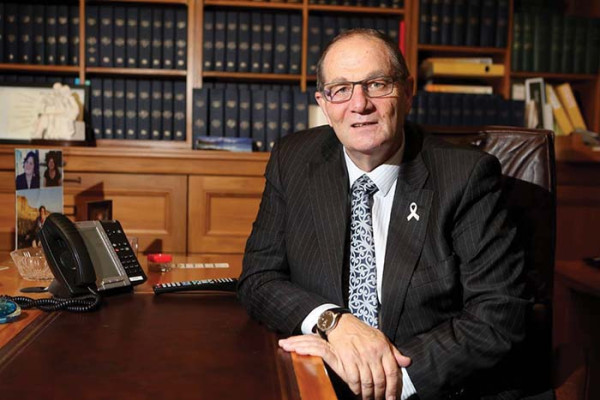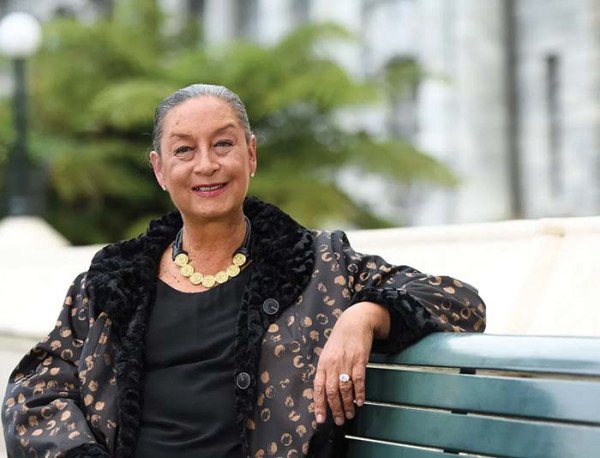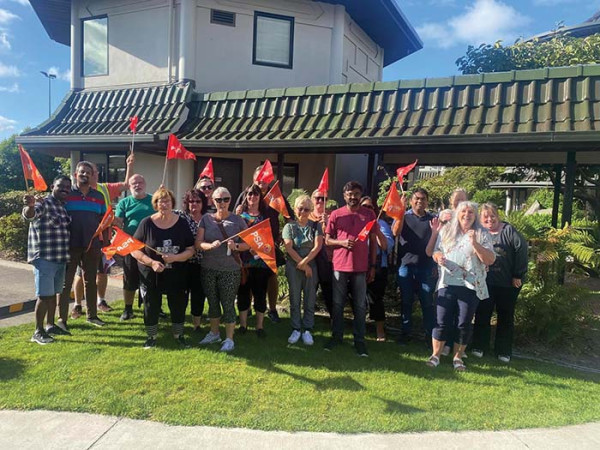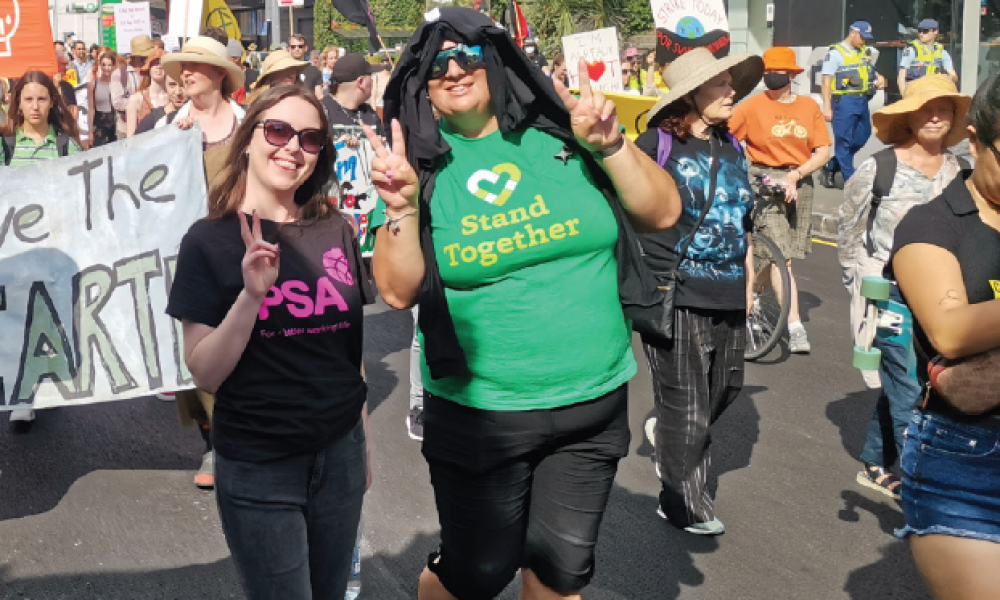PSA Acknowledges the Passing of Chester Borrows and Georgina Beyer
Chester Borrows
Mr Borrows was one of very few from his side of the political spectrum who welcomed the opportunity to get
alongside some of New Zealand’s disability support workers. In 2009, Mr Borrows accompanied a worker to

their job in a community-based disability service house.
He asked compassionate and astute questions about the responsibilities and skills of the work and the positive difference it was making in the lives of the people being supported. He was a supporter of equitable treatment and value for workers, in one of the lowest-paid sectors of the workforce at the time.
The union’s campaign, Up Where We Belong, successfully challenged the fairness and legality of aspects of the working conditions and pay for disability support workers. Through this work, and with the support of politicians such as Mr Borrows, workers are now paid a wage for sleepovers instead of token allowances, home support workers are paid for time travelling between clients, and an initial pay equity deal was struck.
Georgina Beyer
Ms Beyer was the first transgender mayor and Member of Parliament. She helped to pass the 2003 Prostitution Reform Act, which decriminalized sex work. In 2004, she helped pass a law allowing same-sex civil unions. Often described as a trailblazer, Georgina paved the way with her support for progressive policies such as LBGTQI+ rights and Māori rights.

Out@PSA committee member Kerryn Pollock recalls interviewing Georgina as part of Heritage New Zealand
Pouhere Taonga’s Rainbow List Project. “It was hilarious and amazing. I came away from the interview knowing I'd been in the presence of an absolute legend.”
Georgina’s presence in Parliament and local government helped a generation of LBGTQI+ people see themselves reflected – and respected– in society. “As someone from regional Aotearoa, who learnt about the
world of takatāpui later in life, the first person I learnt about was Whaea Georgina,” says Out@PSA committee member Danielle Marks. “For someone to live their truth in regional Aotearoa was something
I never thought was possible until learning about Whaea Georgina. I look forward to growing old in my
transness like her. Moe mai rā e kui.”
Win for Nelson disability workers

After inadequate offers during bargaining, disability and support workers in the Nelson region voted to take strike action. Days before the strike action was set to go ahead, an improved offer was presented and taken to members.
We are now please to report that Te Whatu Ora came back with a much better offer, and this has now been ratified (voted in) by our members.
The offer includes much-needed recognition of the varied work they do, and includes a one-off payment of
$1500 and sees the introduction of a meetings and training clause of three hours paid (if not in work time), a weekend/evening allowance and a sleep disturbance clause.
Members are finally getting recognised for the unique form of work they do.
Community Corrections to go on strike
One thousand nine hundred Community Corrections workers have voted to strike three times over April, after nine months of negotiations.
Low pay and high workloads are the key issue for members. The strikes will involve PSA Community Corrections members walking off the job for three two-hour strikes, three weeks in a row.
This will leave residential facilities managed by Corrections unstaffed, Courts will not have Corrections representatives, programmes will cease to run in Prisons, Community Work crews will not be able to
operate, electronic monitoring will not be monitored and sentences and orders such as Parole and
Release Conditions will not be managed.
PSA supports first climate action of 2023
On Friday, 3 March, PSA members and union staff across Aotearoa joined thousands of students at the
Climate Strike. The marches in Kaitaia, Auckland, New Plymouth, Wellington, Christchurch, Dunedin and Wanaka called on the Government for more urgent action on climate change. Union members joined on their lunch break, waved from windows, and marched while on leave. A small but increasing number of workplaces like Forest and Bird allowed staff to attend during work hours.


